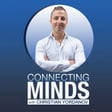
Running for Oklahoma Governor w/ Dr Mark Sherwood
Do you need help with your health? Would you like to increase your longevity while addressing existing health issues?
Request your FREE Metabolic Function Assessment session with me here: https://www.livelongerformula.com/
During this 45-minute consultation we’ll take a deep dive into critical areas of your metabolism and understand what is out of balance.
From gut health and hormone function to adrenal health and blood sugar regulation, even a small imbalance in any of these (or other) areas can lead to poor health in the future and diminished longevity…but the sad fact is that a large majority of people over 40 have multiple imbalances in multiple areas of their metabolism…
The key is to identify and address these swiftly, so that you can thrive for decades to come without worrying that “something’s brewing under the surface.”
Request your Metabolic Function Assessment session here and let's get you thriving for decades to come: https://www.livelongerformula.com/
---
Dr. Mark Sherwood has completed training and certifications in age management, nutrigenetics, nutrigenomics, peptide therapy, hormone therapy, stress management, GI health, and immunology. He is a 24-year retired veteran of the Tulsa Police Department, where he logged a decade of courageous service on the department’s SWAT Team. He is also a former Oklahoma state and regional bodybuilding champion, and ex-professional baseball player. Additionally, Dr. Mark traveled the world for over 10 years with the world-famous Power Team. Mark is also a motivational speaker whose presentations are sought by audiences nationwide.
Links to Dr Mark’s resources and social media:
Functional Medical Institute: https://fmidr.com/
Instagram: https://www.instagram.com/drs_mark_and_michele_/
Twitter: https://twitter.com/marksherwood
Website: https://sherwood.tv/
The Quest For Wellness: A Practical And Personal Wellness Plan For Optimum Health In Your Body, Mind, Emotions And Spirit: https://www.amazon.com/Quest-Wellness-Practical-Personal-Emotions/dp/1943127050/
Fork Your Diet: Master the 4 Fundamentals of Good Health: https://www.amazon.com/Fork-Your-Diet-Master-Fundamentals/dp/193648742X/
Surviving the Garden of Eatin’: Surprising Biblical Insights to Enjoy Optimal Wellness: https://www.amazon.com/Surviving-Garden-Eatin-Surprising-Biblical-ebook/dp/B07RZV4D68/ref=sr_1_4?dchild=1&keywords=mark+sherwood&qid=1615147039&sr=8-4
Fork Your Diet: https://www.amazon.com/Fork-Your-Diet-Mark-Sherwood/dp/B07RQW5S94/
